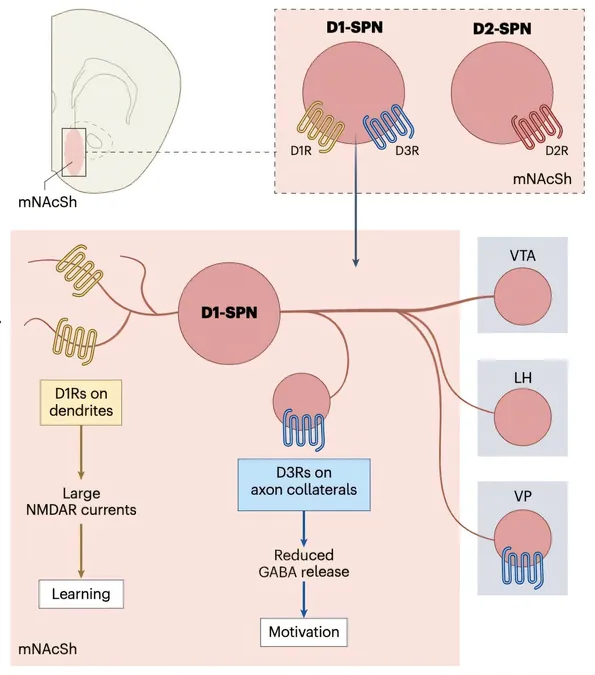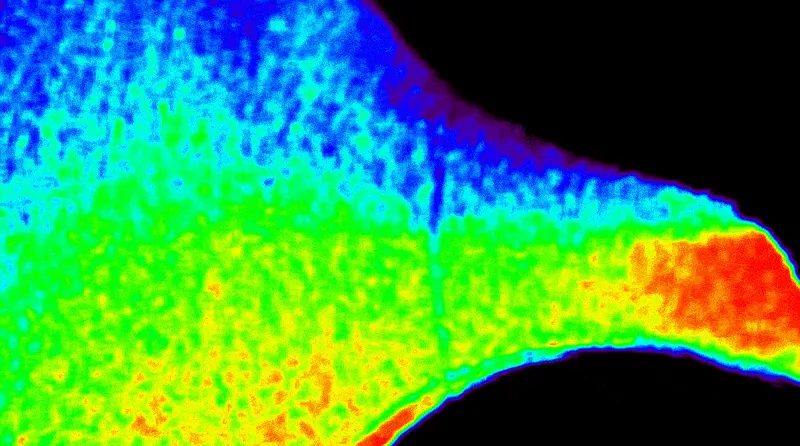
Revealed: How Dopamine Influences Motivation and Learning—The Surprising Roles of D3 and D1 Receptors!
2025-01-15
Author: Mei
Introduction
Dopamine, a crucial neurotransmitter, plays a pivotal role in regulating motivation and reinforcement learning, fundamental processes that affect our behavior and decision-making. While scientists have long recognized dopamine's involvement in the reward system, the intricate cellular mechanisms that drive its effects have remained a mystery until now.
Groundbreaking Research
A groundbreaking study conducted by researchers at the National Institute of Mental Health, along with other esteemed institutions, has delved deeper into the cellular processes that allow dopamine to influence motivation and the reinforcement of certain behaviors. This significant research, published in the prestigious journal Nature Neuroscience, has unveiled that two different dopamine receptors, D3 and D1, govern distinct aspects of reward-related behavior.
Key Findings
As senior author Hugo Tejeda noted, “The previous literature clearly showed that dopamine is important for motivation and reinforcement.” He emphasized that understanding these mechanisms is critical, as both deficiencies and excesses in motivation are key symptoms of various mental disorders. The nucleus accumbens, an essential brain region responsible for processing rewards, contains a high concentration of D3 receptors, which had previously been linked to motivational regulation.
Novel Mouse Model
In a significant advancement, the research team developed a novel mouse model that allowed for the selective genetic deletion of D3 receptors within the nucleus accumbens, without affecting other dopamine receptors. Co-senior author Zachary Freyberg explained, “Using a virus-based technique, we could specifically eliminate D3 receptors here, preserving other receptors and D3 in other areas of the brain.”
Impact on Motivation and Learning
After this targeted genetic modification, the scientists assessed how the lack of D3 receptors impacted the mice's motivation and ability to learn from reinforcement. Their evaluation focused on the willingness of the mice to perform tasks to earn food rewards, providing insight into their motivational drive. “To gauge the impact of D3 deletion on reinforcement learning, we explored the mice's ability to identify actions that yield positive outcomes,” highlighted Tejeda.
Disconnection Methodologies
The innovative “disconnection” methodologies utilized in the study enabled the researchers to analyze the unique contributions of D3 and D1 receptors effectively. Their findings revealed that while D3 receptors are primarily associated with motivation, D1 receptors serve to enhance reinforcement learning.
Implications for Mental Health
Tejeda noted, “Our research presents the first conclusive evidence that dopamine's effects on motivation and reinforcement are mediated by distinct cellular processes in the brain's reward circuitry.” Importantly, this research holds profound implications for the realm of mental health. Medications targeting D3 receptors, such as cariprazine—which received FDA approval for treating mood disorders—could potentially be fine-tuned based on these insights.
Future Directions
The leverage of these new experimental procedures will further empower scientists to dissect the roles of specific receptors in the mouse brain, advancing our understanding of dopamine's contribution to reward-based learning. Tejeda stated, “We are eager to explore how D3 receptor dysfunction leads to motivation loss in various mental disorders and how these receptors interact with others within reward circuits.”
Conclusion
This pioneering research illuminates not only the complex behaviors governed by dopamine but also opens pathways for developing future treatments for mental health conditions characterized by motivational deficits. What other secrets does dopamine hold, and how can this knowledge reshape our approach to mental health treatment? Stay tuned as research evolves in this exciting field!


 Brasil (PT)
Brasil (PT)
 Canada (EN)
Canada (EN)
 Chile (ES)
Chile (ES)
 Česko (CS)
Česko (CS)
 대한민국 (KO)
대한민국 (KO)
 España (ES)
España (ES)
 France (FR)
France (FR)
 Hong Kong (EN)
Hong Kong (EN)
 Italia (IT)
Italia (IT)
 日本 (JA)
日本 (JA)
 Magyarország (HU)
Magyarország (HU)
 Norge (NO)
Norge (NO)
 Polska (PL)
Polska (PL)
 Schweiz (DE)
Schweiz (DE)
 Singapore (EN)
Singapore (EN)
 Sverige (SV)
Sverige (SV)
 Suomi (FI)
Suomi (FI)
 Türkiye (TR)
Türkiye (TR)
 الإمارات العربية المتحدة (AR)
الإمارات العربية المتحدة (AR)